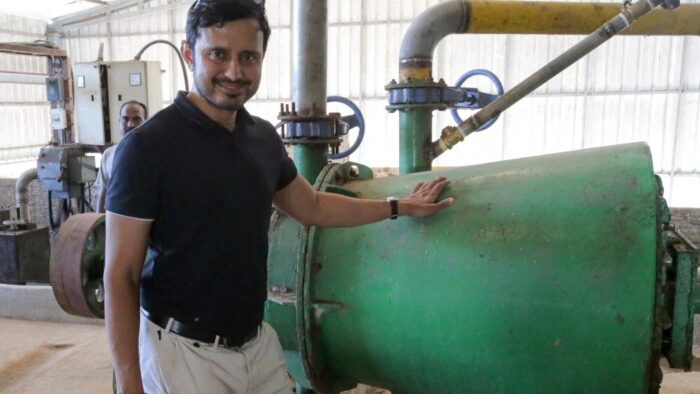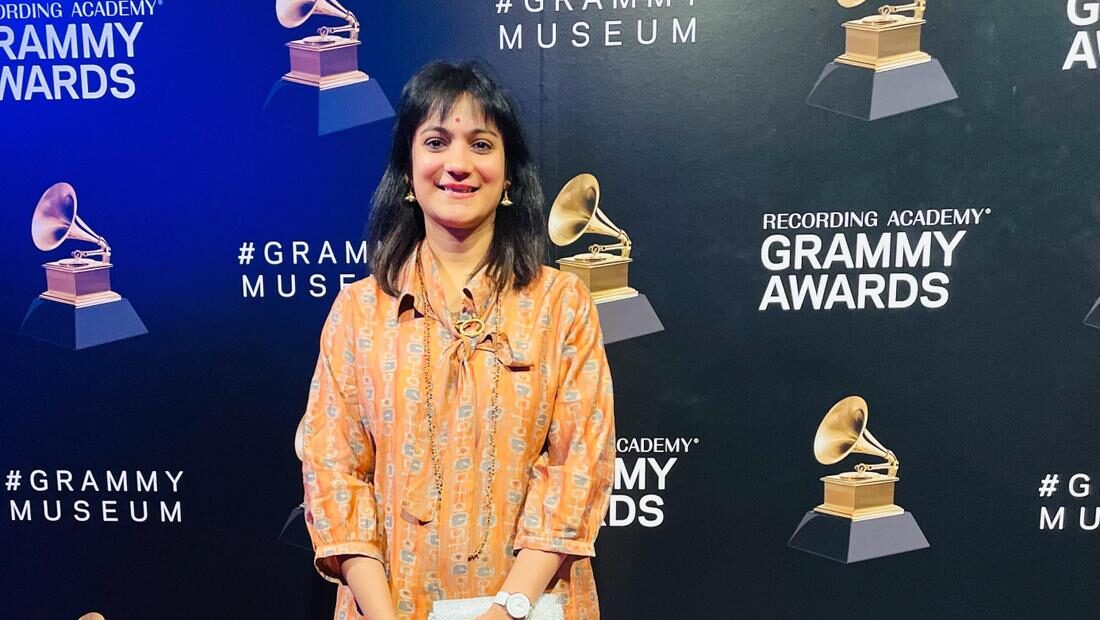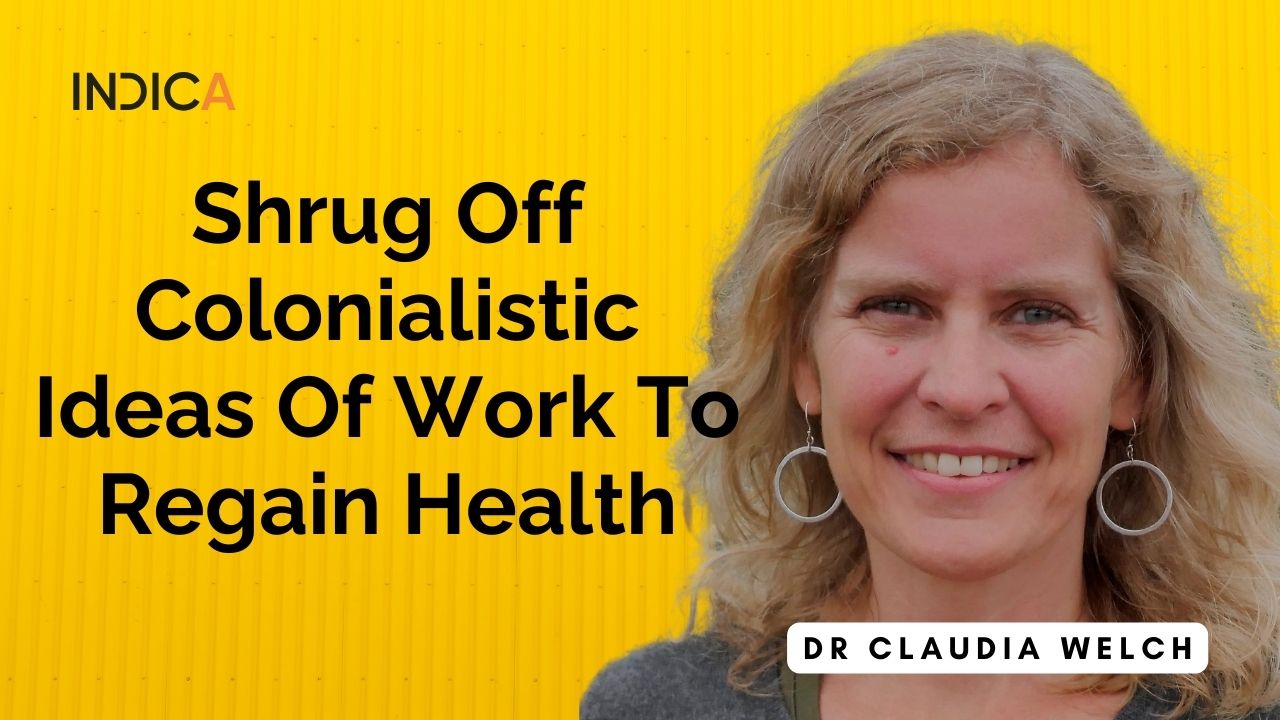Ravi Mantha, co-founder of Bollant Industries, a paper recycling company, and Sage Organics, a farm-to-table Organics store and Café is also one of India's more prolific Angel Investors, with investments in 20+ active startups. Here, he gives insights to the world of organics.
How do you define organic farming?
I define it as soil based farming without the use of chemicals, fertilizers, or pesticides. In addition, we pay a lot of attention to native species of plants that are nutritionally high but not necessarily high-yielding. We also care about creating a biodiverse ecosystem where the soil quality continually improves over time and we create a naturally resilient food forest that supports a wide range of plant, animal, bird and insect life. We also have native varieties of cattle (ongole and punganur cows and buffaloes) as well as native species of hens. Ultimately, organic is a way of living sustainably, with a positive relationship with nature. It results in overall much better health for the whole family, both physically and emotionally, and it results in a lifestyle that is wholesome, rich in experience, and an example to many. I don’t believe that the organic label itself these days has any meaning.
How long have you been in the field? How many years have you been in this field in India? What made you enter into organic farming?
We have been in this field for five years in India. I entered this field because I am a holistic health practitioner and when you are truly interested in wellness and preventive health you quickly realize that you have to grow your own food because you cannot trust the commercial food crops that have been grown with all kinds of toxins thrown at them, and that can directly impact your health especially as you get older. And once we started farming, we had people come up to us looking for authenticity in food, and asked us to give them vegetables and healthy food products, and that is how our small family business was born. I don’t see how we can scale authenticity, but we are ok with the adage that “small is beautiful.” We are happy to share our methods and our learnings with others who may wish to set up their own farms. I am not that interested in scaling it: I am happy with the few hundred families in Hyderabad and now Mumbai that appreciate our effort and look to us to give them their groceries and fresh vegetables and eggs and see us as their wellness coaches and partners.
What gaps were there when you first started? How has the scene changed now?
It's funny now, but we used to have people come in Audis and Mercedes cars and complain that our beans are Rs 20/ kg more than the vegetable mandi. But once they came, visited our farms and saw the love and care that goes into our produce, they began to understand the true meaning of luxury. Yes, our products are at the very peak of luxury, because they are for people who care about what goes into their body and their well-being first. We still have a long way to go, compared to places like Europe or the USA where consumers realize and appreciate the value of food grown with love.
Organic is a buzz word across upper-class societies in Tier 1 and 2 cities of India. How much do people actually understand about organic farming? How can more awareness be raised?
There is what I call “Label-organic”, which unfortunately is just a label these days. What we do is more “authentic” because of the myriad techniques we employ to create a biodiverse food forest. To appreciate our food, one has to visit our farms, eat straight from the plants, and walk through our fields and appreciate the beauty and the wellness that goes into our food. I believe the awareness comes only from engagement with the farmer and from knowing where your food comes from.
How can one make the local rural farmers understand the importance of organic?
It’s very hard. Local rural farmers are simply after a livelihood and they are not going to be able to afford the investment and care that goes into a luxury product like our style of organic farming. Just as you cannot ask an ironsmith to make a BMW, you should be realistic about what the farmers can and cannot do. However, there is room for farmer cooperatives with the help of government policy, like in Sikkim, to thrive. I hope that our Hon’ble CM Chandrasekhar Rao garu of Telangana will make the whole state go organic one day.
With soil, wind, and water movement, how much of "organically grown" is actually organic?
This is a challenge. You have to continually test your crops and your water to make sure it maintains the standards. It is easier for a walled off, stand alone farm like ours compared to other farms which may be surrounded by conventional agriculture.
Going beyond organic, what type of farming practices do you use? Do you follow Vrksh-Ayurvedic techniques, permaculture, or other practices?
We are a bio-dynamic permaculture farm who follows best practices of Fukuoka, Mollison and our own Indian gurus like Palekar and Koppolu.
You've lived in a few places around the world. How does India compare? What are Her strengths? What areas for improvement?
In India, we have largely kept the soil intact out of necessity as we have been farming for thousands of years and need the soil to stay fertile. Our yields are going up a lot with industrial farming practices, and that is bound to hurt the soil if not managed carefully. The other major issue is that most consumers in India think that mandi vegetables are organic. They are most certainly not, and haven’t been in many decades!
 How do you see India growing in the coming 30 years? What sort of trajectory can you envision for this nation?
How do you see India growing in the coming 30 years? What sort of trajectory can you envision for this nation?
I see that most farmers will stop farming, and that is a good thing. It is too much of a technical profession for a subsistence level, uneducated person to make a decent living from these days. It should be left to professionals using modern technology to achieve the end goals, be it high yield through higher use of technical and chemical inputs, or better ways of doing chemical farming (hydroponics), new ideas like urban farming, or high end luxury like biodynamic, permaculture farming that we do as an aspirational lifestyle that is accessible mainly to the discerning consumer.
There's a movement towards traditional health systems, as defined by AYUSH. Do you see a need for cultivating crops that are of medicinal value to these systems? If so, how and why should farmers engage in such.
As we get richer as a nation, a segment of the population will gravitate towards solutions that impact their overall well being in a positive way. This is where the opportunities for educated farmers with resources to invest will come in to play. But most farmers in India are hand to mouth and this is really not something they can take part in, at least for a while,
What is the economic opportunity for local small-scale farmers to go organic? How can India and Indian farmers balance economic versus environmental impact of organic farming?
Indian farmers are pretty much driven by economics for the most part. I do see opportunity to supply certain specialist items like organic haldi or aloe vera to the rich world that cares about these things, but I don’t believe this is a huge opportunity.
About 10% of India's population is elderly, many of whom grew up in families that passed down knowledge of home-grown, home-made practices. Do you see a value in tapping into their knowledges with regards to localized terrains (soil, climate, etc.)? If so, how can India utilize their power?
I would say that unfortunately that knowledge is long gone. Government started doing tv and radio programs starting in the 1960’s on farming, and they have totally dominated the discourse from that point. We need a new generation of educated farmers like us to come in and relearn and reintroduce best practices in organic farming.
India has one of the largest percentages of youth (under 18) population in the world, with nearly 500 million youth. Many rural youth are running away from farming families, into city jobs in technology and hospitality industries. Why? Are there no good jobs available for them in agriculture? How can this be turned around to support youth in their family traditions?
It is true that a delivery boy earns more than a farm intern who is just starting out. But the lifestyle and the opportunity for growth is much better for someone learning organic farming today, because there is a shortage of trained people in this whereas many landowners want to convert their farms to organic. So I do see a gap that can be filled.

On the other hand, young people from cities are now looking to invest in rural farming. Why is this, and is there a way to bridge the knowledge of the rural youth with the desire of the urban?
I think there are two types of farm investors. The first category has rose-tinted glasses and unrealistic ideas about organic farming. The second are those who appreciate and want the lifestyle first and profit is an afterthought. Both will learn important lessons in the future, in their own way!
How can we enourage more youth to study in fields that will be useful for the organic farming sector? What fields should they study? What courses are available in India for the same?
There is a lot of technology we could use more of, like drone data, and robotics, that would help us a lot. We need more of that to become widely available.
Tell us about the Baby Elephant Diet. How did you come up with the system? What is the goal? How many people have you worked with and what results have you had? Why an Elephant?
Baby elephant diet is primarily about prioritizing fiber in the diet. Many diet books are published each year, and I wanted to cover some fresh ground but also take the reader back to basics. It is astonishing that so many vegetarians don’t eat vegetables! The biggest cause of obesity and diabetes and other metabolic illnesses is that fiber has been removed from our food by processing, and this is causing us to consume too many empty calories. Don’t drink the juice, eat the fruit, eat whole grains, eat fruit like guava, these are simple but highly effective strategies that can prevent a lot of lifestyle diseases. Elephants eat 95% fiber in their diet, are vegetarian and are the strongest animal on land. The book is also devoted to Lord Ganesha, the remover of obstacles.
How do you spend your time, apart from your work in the various industries?
I practise as a holistic healer and my work takes me all over the world. I have had the honor of treating Dr. Deepak Chopra’s patients in the US just before the shutdown, and will resume my global travel once the pandemic is behind us. Other than my healing, I spend a lot of time researching health and best practices in measuring and improving wellbeing. I am also working on my next book, on chronic pain.
Tell us about your pets and your favorite trees and plants. Okay, tell us about your family also. Where do you live and why?
When I am not traveling, I live mostly at Baby Elephant Farm close to Hyderabad. We have several Indie dogs, and I have a beautiful great banyan that we rescued as well as Balinese bamboo and a fragrant garden. You can find us on the internet by searching for “Baby Elephant Farm Hyderabad”. I have two sons and my wife is a top organic farm to table chef who has a café in Hyderabad www.sageorganics.in and one in South Mumbai www.savagoodness.com
Ravi’s message to the nation:
Let us build sustainability and wellness into our lives. It cost almost nothing, but the gains are immense in terms of the joy of living as well as preventing ill health.





